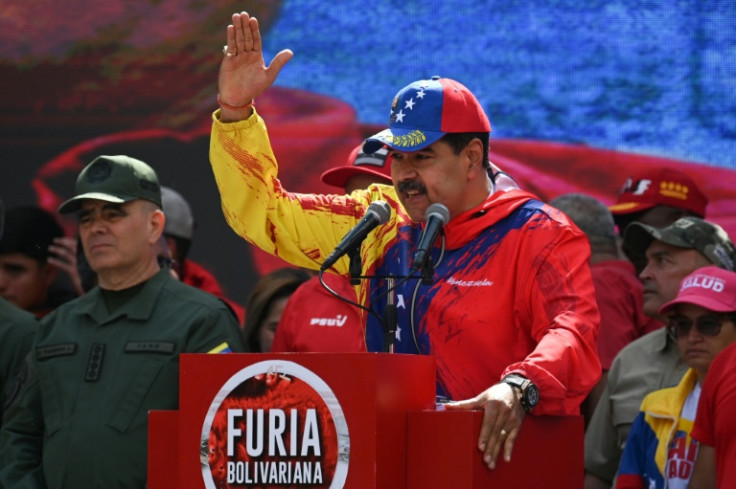
NEW YORK CITY - Representatives from the Biden and Maduro administrations secretly met in Mexico this week to continue negotiations regarding Democratic processes. The rendezvous comes as the deadline to reimpose more sanctions on the South American country by the U.S. government nears.
Among the discussed topics were the upcoming Venezuelan elections. Despite promises of a free and fair race from Venezuela as part of last year's Barbados Agreement, the recent barring of Maria Corina Machado, opposition favorite, and her substitute, Corina Yoris, has raised many eyebrows and put the U.S in an "uncomfortable situation," Bloomberg reported.
Among the attendees was Daniel Erikson of the US National Security Council and Maduro's head negotiator Jorge Rodriguez. The liaisons met in Mexico City.
"The purpose was to express our concerns about Venezuela's electoral process," a White House National Security Council (NSC) spokesperson said of the meeting.
The Venezuelan government, however, has yet to comment on the meeting and its outcomes.
As hopes of democratic elections in Venezuela erode, Washington continues to debate whether to reimpose oil and gas sanctions during an election year in which migration has emerged as a key issue for U.S. voters. The deadline for this decision is fast approaching this upcoming April 18.
If the suspension is lifted, Venezuela could lose a total of $2 billion in oil revenues by the end of 2024, according to Luis Barcenas, the head of Caracas-based economic firm Ecoanalitica. From October until March, the license has enabled Maduro's government to earn an additional $740 million in oil sales, according to Bloomberg.
At the same time, specialists are concerned about whether reimposing sanctions on Venezuela's energy sector could spur higher global oil prices and increase the number of Venezuelan migrants heading for the U.S.-Mexico border.
No final decision regarding the sanctions has been made yet, Reuters reports.
But as The White House continues to ponder on what direction to take, they are asking Venezuela's neighbors to help on the democratic initiative. Colombia has seemingly taken the center stage in these efforts.
Colombian President Gustavo Petro flew to Caracas with US backing on Tuesday, the same day of the Mexico meeting. Petro met with Maduro for nearly three hours before sitting down with opposition presidential candidate Manuel Rosales the following morning.
This particular visit took place after Colombia criticized Maduro for blocking the participation of Machado and Yoris in the upcoming July election. That decision was an unusual step for the neighboring country.
The Biden administration's diplomatic relations with Maduro mark a major shift away from former President Donald Trump's "maximum pressure" policy.
The U.S. reimposed some non-energy sanctions after Venezuela's Supreme Court upheld the election ban on Machado over what it claimed was her support for sanctions and accusations of corruption.
The Venezuelan government, in turn, suspended an agreement to receive deported Venezuelans apprehended at the U.S. southern border when trying to cross unlawfully.
© 2024 Latin Times. All rights reserved. Do not reproduce without permission.
Trump promised to increase efforts to win over Latinos—so far, there's little evidence of progress
New Department of Labor rule seeks to boost working conditions for temporary farmworkers
Latino-led venture capital firms drive job creation: Over 50,000 jobs generated in 2023, says SomosVC
From consultancy to tutoring, here's how much Latinos in California earn working in different industries